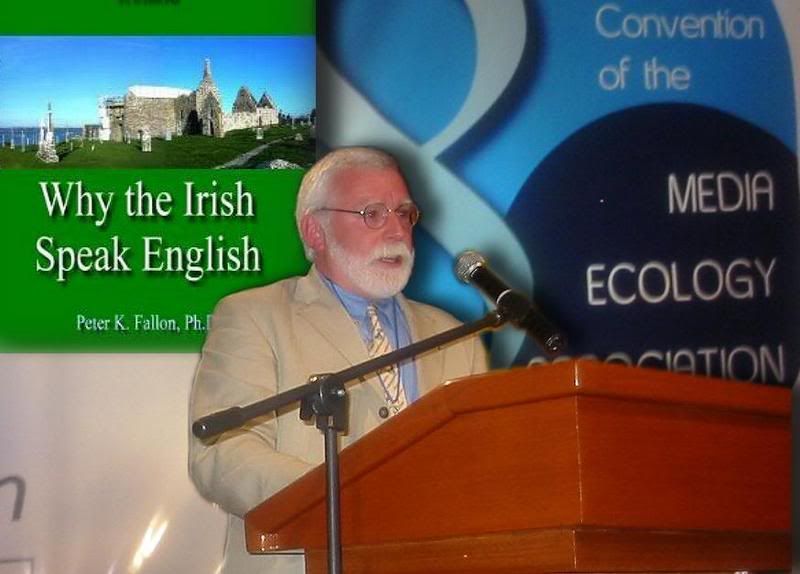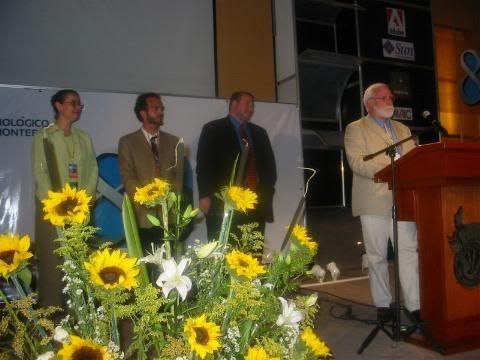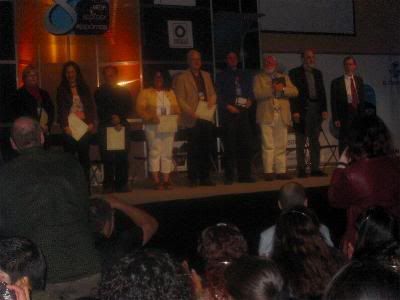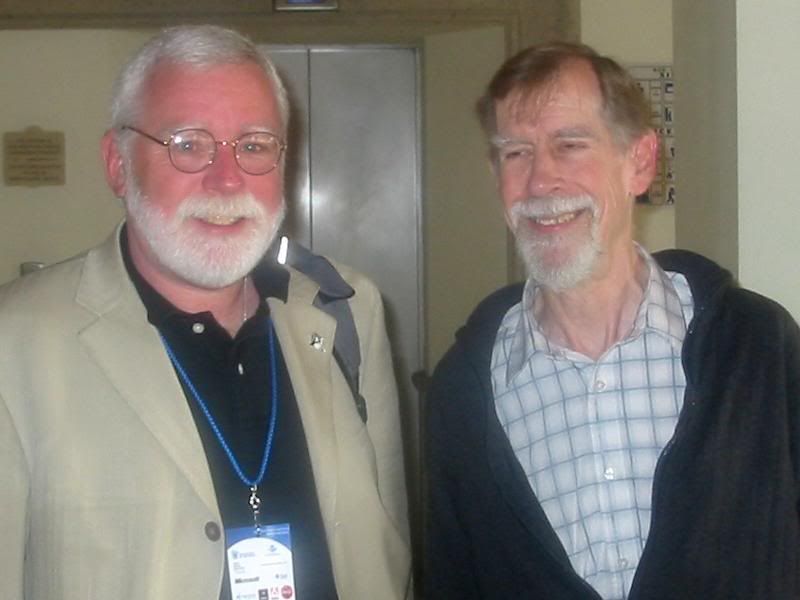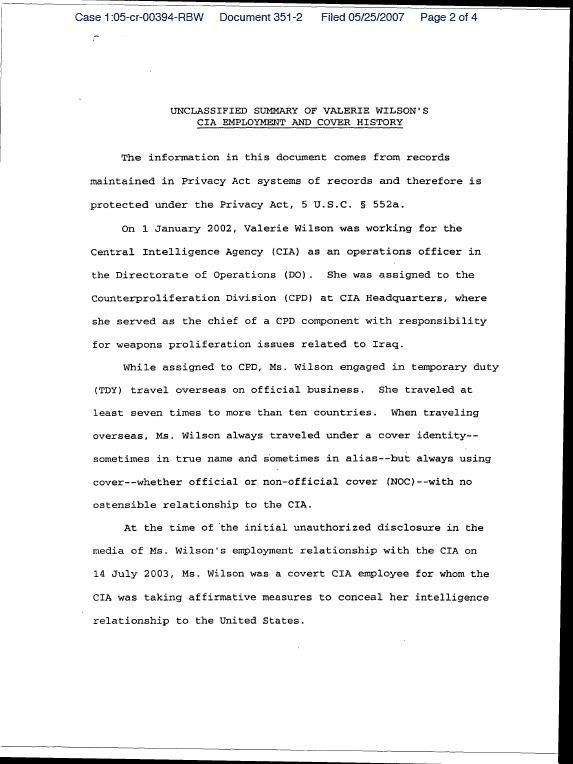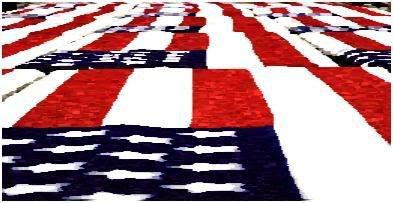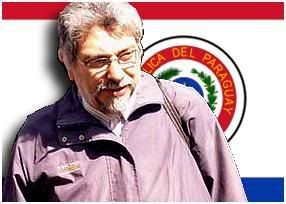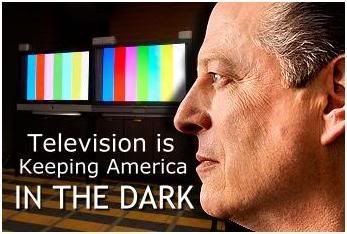
This comes from former Vice President Al Gore's new book,
The Assault on Reason, excerpted in this week's
TIME magazine. I post these excerpts here for a number of reasons: 1] it is inherently newsworthy; 2] it makes use -- deliberately or not -- of principles of the field of Media Ecology (and I have reason to believe that this use was deliberate); 3] he makes many of the same points as I do here in this blog, noting that people of good will will "do the right thing" when they are in possession of good information; and 4] Gore demonstrates once again that he is, beyond question, one of the most intelligent people in the public sphere today. The man
ought to be president!!!He begins by lamenting the nature of politics in the post-modern United States (all emphases throughout these excerpts are
mine):
..."Why do reason, logic and truth seem to play a sharply diminished role in the way America now makes important decisions?" The persistent and sustained reliance on falsehoods as the basis of policy, even in the face of massive and well-understood evidence to the contrary, seems to many Americans to have reached levels that were previously unimaginable....
American democracy is now in danger—not from any one set of ideas, but from unprecedented changes in the environment within which ideas either live and spread, or wither and die. I do not mean the physical environment; I mean what is called the public sphere, or the marketplace of ideas....
While American television watchers were collectively devoting 100 million hours of their lives each week to these and other similar stories (O.J. Simpson, Michael Jackson, Laci Peterson, Robert Blake, Paris Hilton, etc.), our nation was in the process of more quietly making what future historians will certainly describe as a series of catastrophically mistaken decisions on issues of war and peace, the global climate and human survival, freedom and barbarity, justice and fairness. For example, hardly anyone now disagrees that the choice to invade Iraq was a grievous mistake. Yet, incredibly, all of the evidence and arguments necessary to have made the right decision were available at the time and in hindsight are glaringly obvious....
Gore comes perilously close to writing the book I've been writing for the last several years, and it is certainly on my reading list. I look forward to its publication, even if (or, perhaps, especially if) it replicates my own ideas. His book will certainly get a far wider reading than anything I might ever write could, and his message (and mine) is too important to be left
IN THE DARK.
Our Founders' faith in the viability of representative democracy rested on their trust in the wisdom of a well-informed citizenry, their ingenious design for checks and balances, and their belief that the rule of reason is the natural sovereign of a free people. The Founders took great care to protect the openness of the marketplace of ideas so that knowledge could flow freely. Thus they not only protected freedom of assembly, they made a special point—in the First Amendment—of protecting the freedom of the printing press. And yet today, almost 45 years have passed since the majority of Americans received their news and information from the printed word. Newspapers are hemorrhaging readers. Reading itself is in decline. The Republic of Letters has been invaded and occupied by the empire of television....
Gore makes it pretty clear that not only is he familiar with the works of
Neil Postman, founder of the NYU's
Media Ecology program, but he is also familiar with the principles regarding the operation of media and their consequences for the user:
In the world of television, the massive flows of information are largely in only one direction, which makes it virtually impossible for individuals to take part in what passes for a national conversation. Individuals receive, but they cannot send. They hear, but they do not speak. The "well-informed citizenry" is in danger of becoming the "well-amused audience." Moreover, the high capital investment required for the ownership and operation of a television station and the centralized nature of broadcast, cable and satellite networks have led to the increasing concentration of ownership by an ever smaller number of larger corporations that now effectively control the majority of television programming in America.
In practice, what television's dominance has come to mean is that the inherent value of political propositions put forward by candidates is now largely irrelevant compared with the image-based ad campaigns they use to shape the perceptions of voters....
As a result, our democracy is in danger of being hollowed out. In order to reclaim our birthright, we Americans must resolve to repair the systemic decay of the public forum. We must create new ways to engage in a genuine and not manipulative conversation about our future. We must stop tolerating the rejection and distortion of science. We must insist on an end to the cynical use of pseudo-studies known to be false for the purpose of intentionally clouding the public's ability to discern the truth. Americans in both parties should insist on the re-establishment of respect for the rule of reason....
Gore then invokes the name of one of the founding fathers -- certainly the best known of the founding fathers -- of the entire field of media studies:
To understand the final reason why the news marketplace of ideas dominated by television is so different from the one that emerged in the world dominated by the printing press, it is important to distinguish the quality of vividness experienced by television viewers from the "vividness" experienced by readers. Marshall McLuhan's description of television as a "cool" medium—as opposed to the "hot" medium of print—was hard for me to understand when I read it 40 years ago, because the source of "heat" in his metaphor is the mental work required in the alchemy of reading. But McLuhan was almost alone in recognizing that the passivity associated with watching television is at the expense of activity in parts of the brain associated with abstract thought, logic, and the reasoning process. Any new dominant communications medium leads to a new information ecology in society that inevitably changes the way ideas, feelings, wealth, power and influence are distributed and the way collective decisions are made....
Or, as McLuhan put it, "
the medium is the message." And the consequences (the "message") of the social change brought about by television on a democratic polity have been dire:
Many young Americans now seem to feel that the jury is out on whether American democracy actually works or not. We have created a wealthy society with tens of millions of talented, resourceful individuals who play virtually no role whatsoever as citizens.
I would go a step further here and suggest that one of the consequences of the commoditization of information and the increasing commercialization of what
is actually and
ought to be seen as the uniquely human activity --
communication -- is that we have ceased to even see ourselves as citizens. We are now nothing more than
consumers -- consumers
not in a marketplace of ideas, but of impressions.
Bringing these people in—with their networks of influence, their knowledge, and their resources—is the key to creating the capacity for shared intelligence that we need to solve our problems....
Fortunately, the Internet has the potential to revitalize the role played by the people in our constitutional framework. It has extremely low entry barriers for individuals. It is the most interactive medium in history and the one with the greatest potential for connecting individuals to one another and to a universe of knowledge. It's a platform for pursuing the truth, and the decentralized creation and distribution of ideas, in the same way that markets are a decentralized mechanism for the creation and distribution of goods and services. It's a platform, in other words, for reason....
The democratization of knowledge by the print medium brought the Enlightenment. Now, broadband interconnection is supporting decentralized processes that reinvigorate democracy. We can see it happening before our eyes: As a society, we are getting smarter. Networked democracy is taking hold. You can feel it. We the people—as Lincoln put it, "even we here"—are collectively still the key to the survival of America's democracy.
Why isn't this man President?
The next time you hear someone taking a shot at Gore because he is "wooden," or "stiff," or "boring," the next time you hear them parroting claims that are just not true, but have been repeated so many times -- on television -- that lazy-minded people believe them, rest assured in the knowledge that you are dealing with one of those very same lazy-minded people -- TV people. And then learn about your world, and vote for candidates that will make it better.
Democracy pointless? Only if you believe it to be.
DRAFT GORE FOR 2008!!!
 How much are we going to let Pervez Musharraf get away with? He has used the "fear of terrorism" to bolster his dictatorship, all the while justifying terrorism of which he approves and pampering terrorists in his own western frontiers.
How much are we going to let Pervez Musharraf get away with? He has used the "fear of terrorism" to bolster his dictatorship, all the while justifying terrorism of which he approves and pampering terrorists in his own western frontiers.












